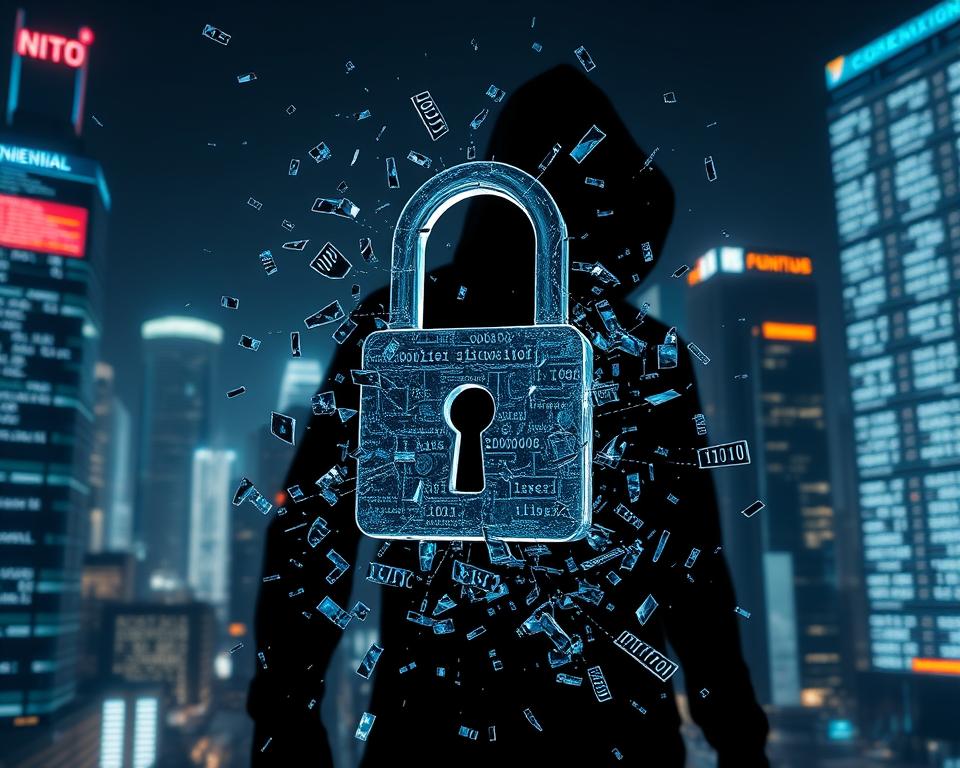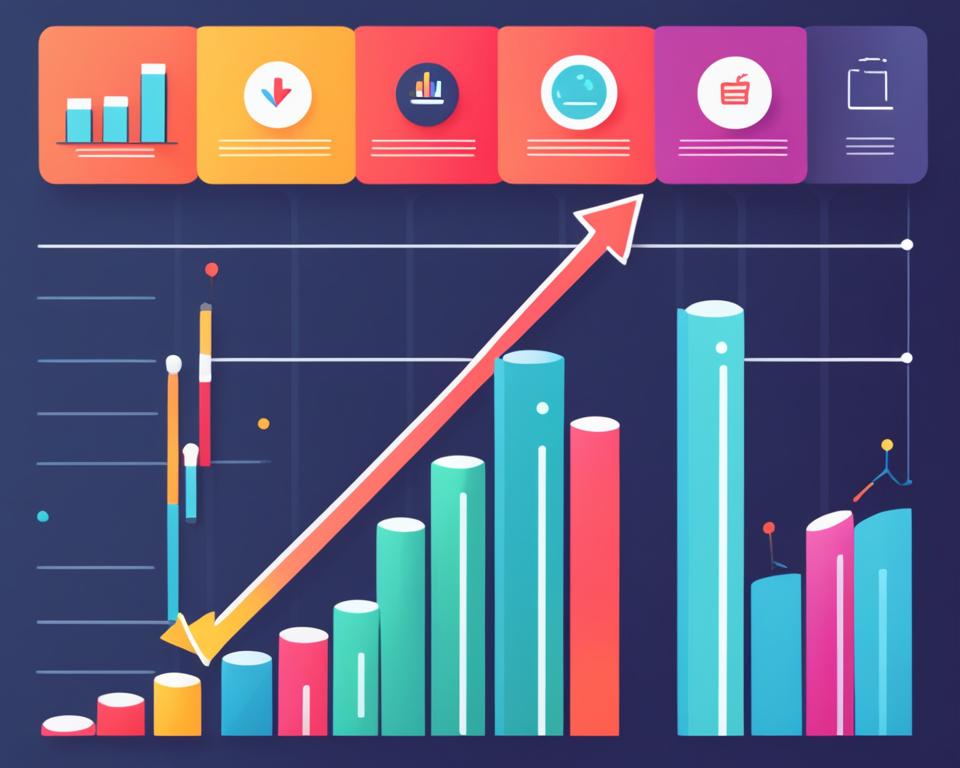In today’s world, every click can be tracked and personal data collected without asking. Have you ever thought about how much of your online identity is really yours? The need for online privacy has grown as the internet becomes a place where data is gathered everywhere.
To keep your online presence private, you need to take steps that protect your digital life. This guide will show you how to stay hidden online and keep your personal info safe from unwanted eyes.
Understanding the Importance of Online Anonymity
In today’s world, keeping your online identity private is key. As we explore the digital world, protecting our privacy is crucial. Many risks come with being online, like being tracked by advertisers and hackers.
The Need for Privacy in the Digital Age
The internet has given us lots of information and connections. But, it also raises big privacy concerns. Many don’t know how their online actions shape their digital identity. Keeping your data private helps protect you from unwanted surveillance.
Risks of Online Tracking and Data Harvesting
Many groups track our online activities to gather data. This is a big risk because our personal info could fall into the wrong hands. If data is stolen, it can ruin our privacy and safety online. It’s important to know how to protect ourselves from these threats.
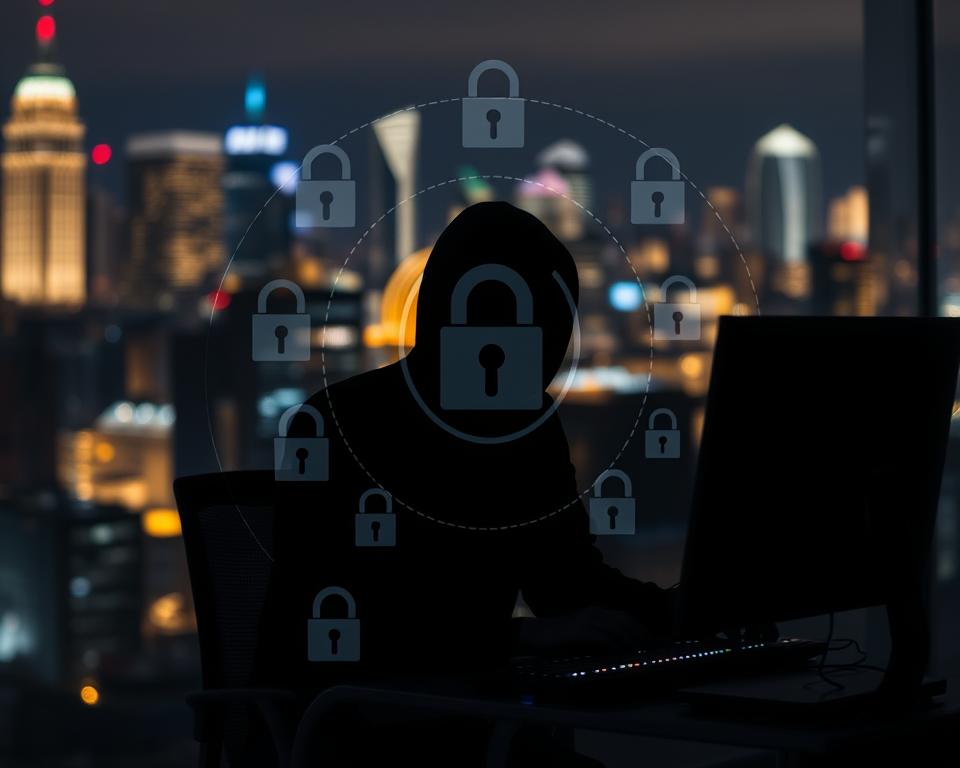
| Risks | Impact | Protection Measures |
|---|---|---|
| Data Breaches | Loss of personal information, financial loss | Use strong passwords, enable two-factor authentication |
| Online Tracking | Surveillance, targeted advertising | Utilize VPNs, disable tracking cookies |
| Name and Address Theft | Identity theft, fraudulent transactions | Monitor credit reports, use privacy-focused services |
Steps to Take in Order to Be Anonymous Online
To stay anonymous online, you need to take specific steps. Using the right tools can greatly improve your privacy and security.
Using a VPN for Enhanced Privacy
A VPN is key for staying hidden online. It hides your IP address and encrypts your data. This keeps your internet activities safe from your ISP.
But, picking a good VPN is important. Look for one that doesn’t log your activities. This way, your online actions stay private.
Choosing the Right Encrypted Messaging Services
For safe chats, use encrypted messaging apps like Signal and WhatsApp. They encrypt your messages so only the sender and receiver can read them. This stops others from spying on your conversations.
Utilizing Secure Browsers to Protect Your Web Activity
Secure browsers also help keep you anonymous. Browsers like Tor encrypt your data and hide your IP address. This makes it harder for trackers to follow you.
But, remember, secure browsers alone might not make you completely invisible. Using a mix of tools can make your online presence much safer.

Alternative Solutions for Maintaining Anonymity
In today’s world, keeping your online identity private is more important than ever. There are many tools that can help you stay anonymous. These include temporary email services, anonymous cryptocurrencies, and zero-knowledge services. Each offers unique ways to protect your privacy online.
Exploring Temporary Email Services
Temporary email services give you a disposable email address. This is great for avoiding spam and keeping your real email private. With services like Temp Mail, you can have short-term emails without sharing your real address.
These services are perfect for getting confirmation emails without the hassle. They help keep your personal info safe from unwanted messages.
The Role of Anonymous Cryptocurrencies in Secure Transactions
Anonymous cryptocurrencies are becoming popular for secure transactions. Monero, for example, uses advanced privacy tech to hide your identity. Unlike Bitcoin, Monero keeps your transaction details secret.
This means you can send and receive money online without being traced. It’s a great way to keep your financial activities private.
Benefits of Using Zero-Knowledge Services
Zero-knowledge services, like ProtonMail and SpiderOak, focus on keeping your data safe. They allow for private emails and file storage without giving access to your info. This is thanks to strong encryption.
These services ensure that even the providers can’t see what you’re sharing. It’s a top choice for those who want to keep their online activities private.
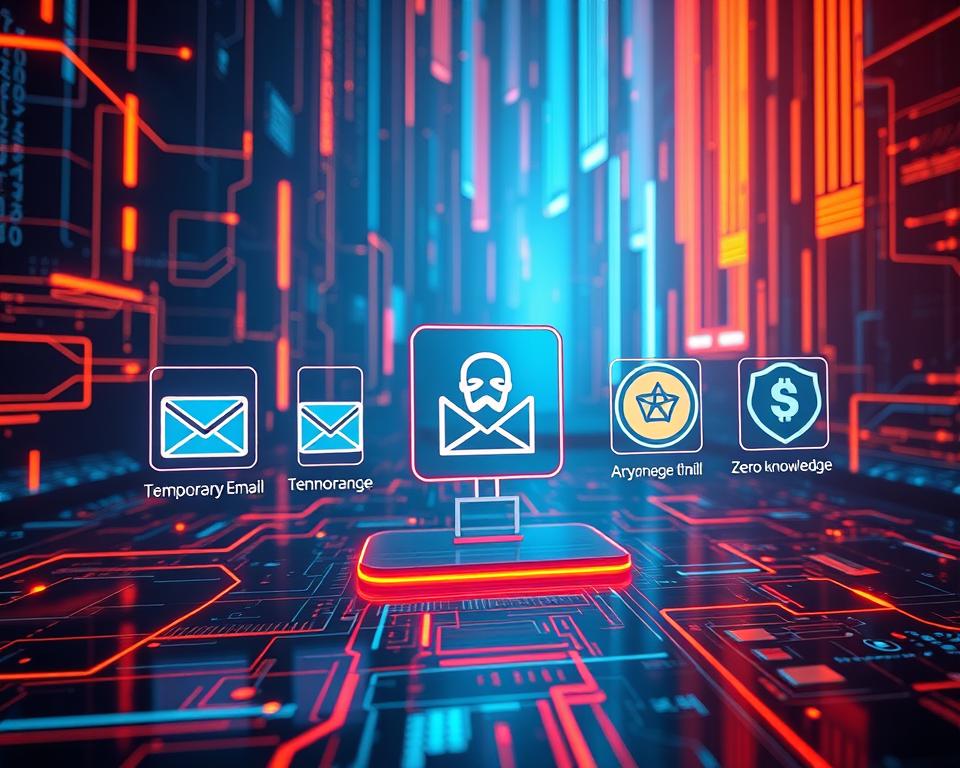
| Service Type | Example | Primary Benefit |
|---|---|---|
| Temporary Email Services | Temp Mail | Protects against spam and data exposure. |
| Anonymous Cryptocurrencies | Monero | Ensures untraceable financial transactions. |
| Zero-Knowledge Services | ProtonMail | Offers private communication with encryption. |
Best Practices for Safe Online Behavior
Keeping your online activities safe is key to protecting your privacy. By following certain steps, you can greatly reduce online risks. It’s important to know how to handle your personal info and understand app permissions and privacy policies.
Limit Sharing Personally Identifiable Information (PII)
Sharing personal info online should be limited. On social media or forums, don’t post your address, phone number, or Social Security number. These details are often sought by identity thieves. Being careful online helps keep your privacy safe.
Restrict App Permissions and Read Privacy Policies
Check app permissions before downloading. Some apps ask for more data than they need. For example, a weather app might not need your location or contacts. Limiting access to your data is crucial.
Reading privacy policies helps you understand how your data will be used. This knowledge lets you make better choices about which apps to download. It helps you develop safer habits online.

| Action | Description | Benefits |
|---|---|---|
| Limit PII Sharing | Restrict posting sensitive information online. | Reduces risks of identity theft and personal attacks. |
| Review App Permissions | Examine what data an app requests access to. | Minimizes unnecessary data sharing and exposure. |
| Read Privacy Policies | Analyze how an app collects and uses data. | Enables informed decisions on app usage and data safety. |
Technical Tools to Help Preserve Your Anonymity
Keeping your online identity hidden needs smart strategies and tools. By using the right tools, you can boost your privacy and security online.
How to Disable Cookies and Use HTTPS
First, turn off cookies in your browser settings. This step blocks third-party cookies from tracking your web activities. It helps prevent detailed profiles by advertisers and others.
Also, always use HTTPS when visiting websites. This encrypts your data, making it hard for others to see what you’re doing online. Together, these steps are key to staying anonymous online.
Implementing Robust Password Management Solutions
Strong passwords are vital for protecting your online identity. A password manager helps you create and keep unique passwords for each account. This way, you avoid the risk of hackers using your passwords on different sites.
Good password management tools make your life easier. They let you access all your accounts without remembering complex passwords. This way, you stay safe and secure online.
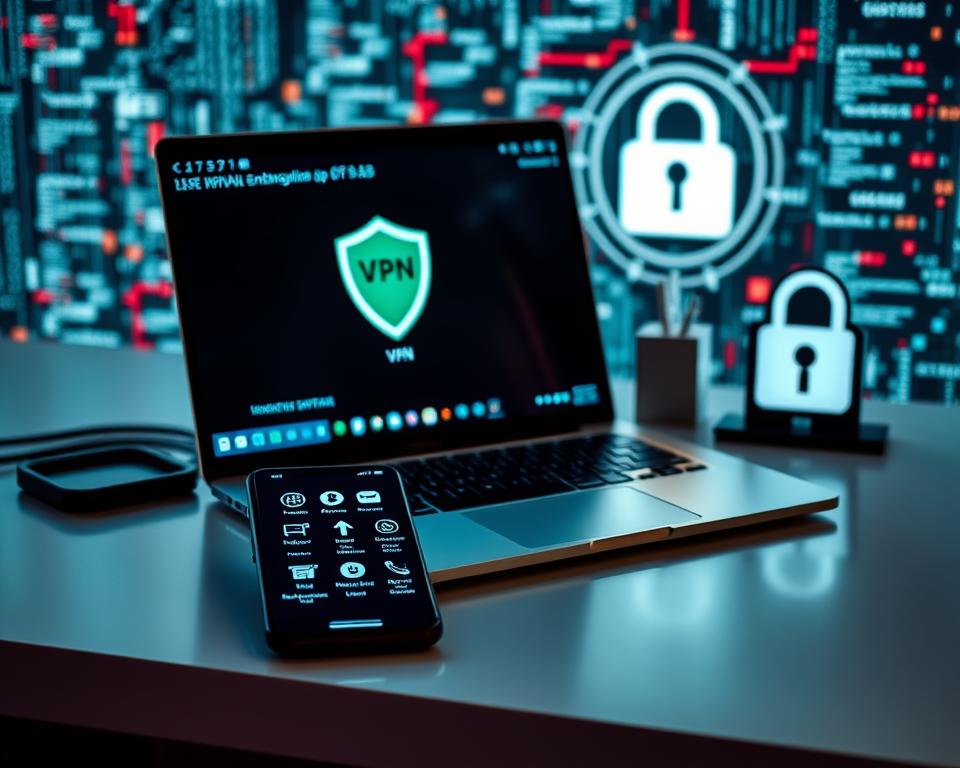
| Technique | Description | Benefits |
|---|---|---|
| Disable Cookies | Turn off third-party cookies in browser settings. | Reduces tracking and profiling. |
| Use HTTPS | Ensure sites are secured with HTTPS protocol. | Encrypts data transmission to enhance security. |
| Password Management | Use a password manager for unique passwords. | Improves security and prevents credential theft. |
Conclusion
Seeking online anonymity requires a mix of strategies and tools. It also means being very aware of how you act online. While total invisibility might not be possible, you can still protect your personal data. Using VPNs, encrypted messages, and careful info management helps a lot.
The digital world changes fast, so staying up-to-date with privacy tips is key. By focusing on keeping your data private, you can handle the internet’s watchful eye better. Keeping your online activities private lets you use the internet freely, without constant fear of being watched.
To truly stay anonymous online, you need to stay proactive. Always update your strategies and use the best tools available. Keeping your online presence safe is an ongoing effort. It’s about knowing how important these steps are and how they help protect your digital life.

